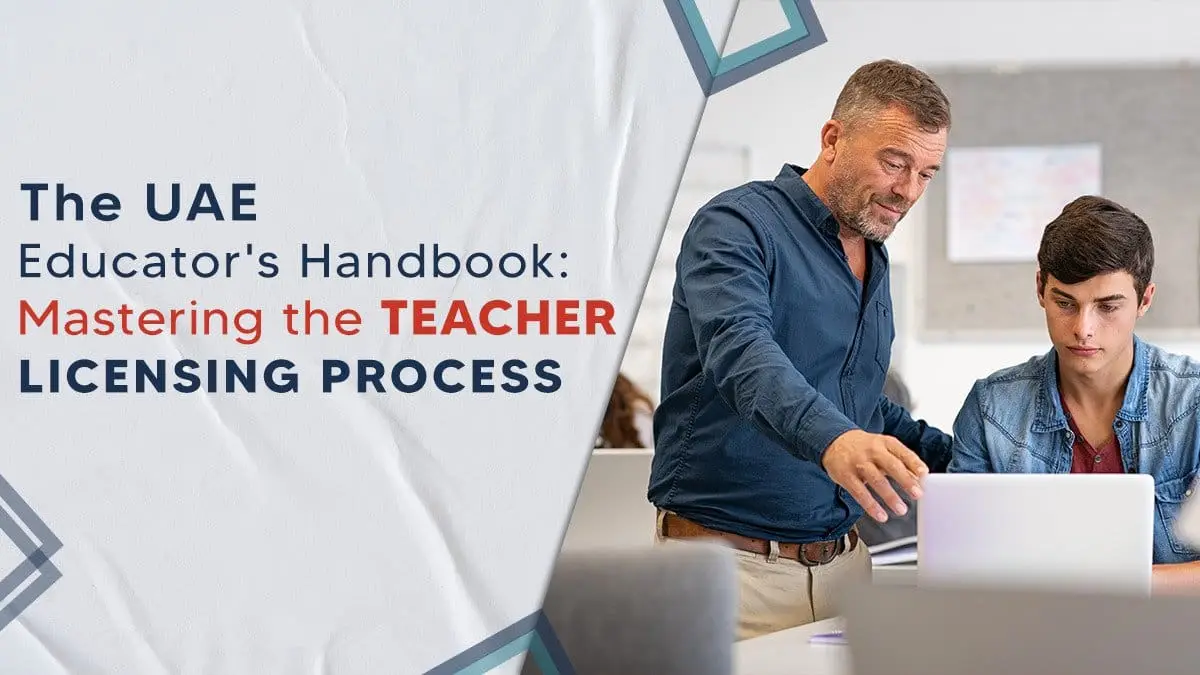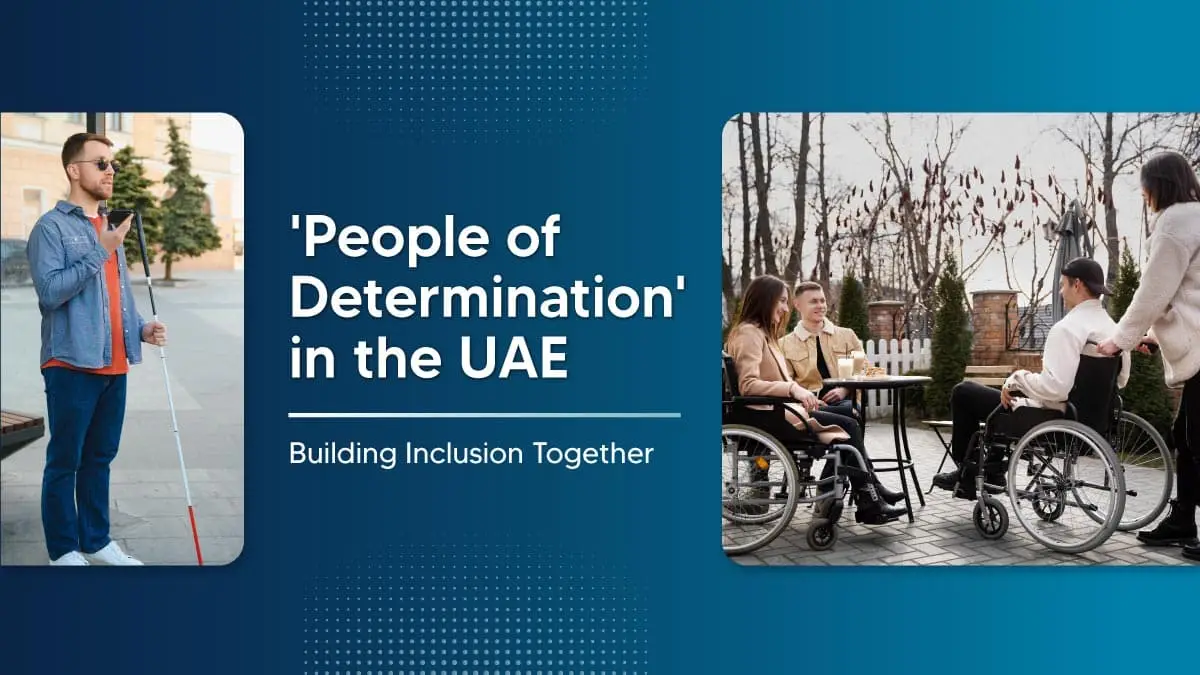Dubai, renowned as an educational hub with a significant number of private and international academic centres, places a premium on the importance of a teaching license in UAE, especially for educators shaping students’ learning experiences in the region. The government, through the Knowledge and Human Development Authority (KHDA), has implemented rigorous approval processes to ensure that educational providers deliver high-quality services. The KHDA possesses the authority to audit schools, publicly assess their performance, and levy fines on those not meeting the prescribed standards.
The responsibility for the development and quality of private education in Dubai falls under the purview of the KHDA, which establishes teacher qualification standards in alignment with its commitment to uphold educational excellence. These standards are designed to safeguard and enhance the overall quality of teaching and learning within private schools in Dubai. For assistance in obtaining a teaching license in the UAE, Shuraa Business Setup offers valuable support and guidance.
Why is obtaining a teaching license crucial?
Acquiring a teaching license in the UAE is indispensable for educators, showcasing the country’s dedication to top-notch education. Beyond meeting legal obligations, this procedure guarantees that teachers adhere to rigorous standards, engage in continuous professional development, and unlock various career prospects. The acknowledgement of a teaching license not only boosts credibility but also reinforces the implementation of professional standards, highlighting the UAE’s unwavering commitment to fostering a strong and ethical education sector.
Multifaceted Role of Teaching license in Dubai
In Dubai, teaching serves pivotal roles:
1. Educational Excellence:
Teachers in Dubai play a crucial role in maintaining high educational standards, ensuring students receive top-quality education.
2. Cultural Integration:
Educators contribute to the cultural integration of diverse student populations, fostering understanding and respect among students from various backgrounds.
3. Workforce Development:
Teachers prepare students for the global workforce, imparting skills and knowledge for success in a competitive economy.
4. Professional Standards:
Teaching in Dubai involves upholding and adhering to professional standards, contributing to the overall integrity and reputation of the education system.
5. Nation Building:
Educators contribute to the development of a knowledgeable and skilled workforce, aligning with broader national goals of progress.
6. Global Competitiveness:
The role of teaching in Dubai extends to enhancing the global competitiveness of the UAE, nurturing a population capable of contributing to international fields.
Criteria for School Assessment by the UAE Teaching Authority:
The ensuing criteria outline the key factors considered during school assessments.
1. Student’s Progress:
Evaluation of academic achievements, including performance in tests and co-curricular activities.
2. Teaching and Guiding:
Assessment of the quality and effectiveness of teaching and Review of teacher qualifications, materials, resources, and teaching practices.
3. Co-curricular Activities:
Examination of academic, co-curricular, and sports activities to gauge overall student performance
4. Examination and Appraisal:
Assessment of school activities, examination processes, and student progress in mid-term and final exams. Review of feedback provided to parents and students during meetings.
6. Teacher’s Qualification:
In Dubai, teachers must meet specific educational qualifications for their initial appointment. Class teachers need an acceptable bachelor’s degree or higher in education, and subject teachers must hold a relevant bachelor’s degree. After their appointment, teachers must register with the Educator Permit System at a Dubai private school to comply with regulatory standards.
What is the registration process to become a teacher in the UAE?
The requirements include:
- Subject qualification
- Teacher preparation qualification
- Additional criteria for certification
- English competence
- Legal status
- Fitness for teaching
- Strong standing
- Mandatory professional development
Mandatory Teaching License in Dubai for Education Professionals
A teaching license is essential for individuals seeking employment as educators in the UAE. As of the end of 2020, it became a mandatory requirement for all education professionals, aimed at fostering professional development and maintaining high-quality education standards. Education professionals can register in designated stages to book exams aligned with their respective specialties. The UAE Teachers’ Licensing System (TLS) pilot phase was introduced in 2017, paving the way for its mandatory implementation for all education professionals by the conclusion of 2020.
Applying for a teaching license in UAE
Here’s a concise guide to help you navigate through the essential steps and requirements.
1. Examinations:
Teachers must pass two exams, one in pedagogy and one in their specialized area.
2. Customised Training:
If exam scores fall short, personalized training courses are offered to achieve desired results.
3. License Requirement:
Licenses are essential credentials for legal teaching operation in the UAE.
4. Guidelines and Regulations:
KHDA teacher guidelines and regulations, mandated by the Knowledge and Human Development Authority and UAE Ministry of Education, outline necessary qualifications and licensing programs.
5. Private School Application:
For private school applications, the school’s administration contacts the Ministry of Education or the Knowledge and Human Development Authority for necessary documents.
UAE’s Education Professional Licensing
The ‘Education Professional License’ is obligatory for educators in the UAE, serving as a legal requirement for teaching. Obtaining the license involves tailored tests, with training courses offered for those not meeting exam criteria. Applicants have three chances, and after three attempts, a six-month waiting period allows for test retakes along with access to training programs. In order to become a teacher in the UAE, a bachelor’s degree in a relevant field is required. The license mandate extends to all educational staff, from employees to principals, ensuring the quality of the teaching workforce in the UAE.
Documents Required for Teaching License in the UAE
To obtain a teaching license in the UAE, applicants must meet specific requirements and provide essential documents:
1. Complete Licensing Tests: Applicants must pass tests designed for their educational category. If the test is not passed, tailored training courses are provided to help achieve the required level.
2. Certificate Attestation: Graduates from non-UAE schools must have their certificates attested by the UAE embassy or consulate in the country where the qualification was obtained.
3. Legal Accreditation: Ensure all documents are legally accredited with an apostille stamp, which improves employability prospects.
4. UAE Residency Visa: A valid UAE residency visa is required for all teaching applicants.
5. Job Contract: Submit a valid school or job contract as part of the application.
6. Academic Documents: Provide attested graduate certificates and transcripts.
7. Equivalency Certificate: Obtain an equivalency certificate from the Ministry of Education (MOE).
8. Health Declarations: Submit proof of physical and mental fitness to teach.
9. Police Clearance: A police clearance certificate is required along with a letter from the school confirming the teacher’s good standing. If you’ve lived in the UAE for less than five years, police clearance certificates from each country of residence over the last five years are also required.
10. Ongoing Professional Development: Mandatory professional development courses are required to maintain certification.
11. Medical Qualification: For certain specialized roles, a medical professional qualification may be necessary.
How Shuraa Business Setup can help?
Let Shuraa Business Setup guide you through the process of opening an Early Childhood Education Centre in Dubai. From company incorporation to securing office space, our experienced advisors ensure an easy and hassle-free experience. Reach out to Shuraa by phone at +971 4 4081900, via WhatsApp at +971 50 7775554, or by sending an email to [email protected].
Frequently Asked Questions
Q1. What does KHDA oversee or manage?
The KHDA is tasked with ensuring that higher education institutions in Dubai are established and operated in accordance with local legislation and the highest standards of quality.
Q2. Which entity oversees registering educational institutes in Dubai?
The Knowledge and Human Development Authority in Dubai (KHDA)
Q3. Is a local sponsor required for opening a private school in Dubai?
Yes, it is necessary on the mainland.
Q4. Is approval from the KHDA required for opening a training institute in Dubai?
Yes.
Q5. What is the cost of obtaining a teacher’s license in the UAE?
The examination fee is Dh250, and upon successful completion, there is an additional Dh50 fee for the license. In the event of a failed test, teachers are allowed two more attempts, each incurring a Dh100 resit fee.







